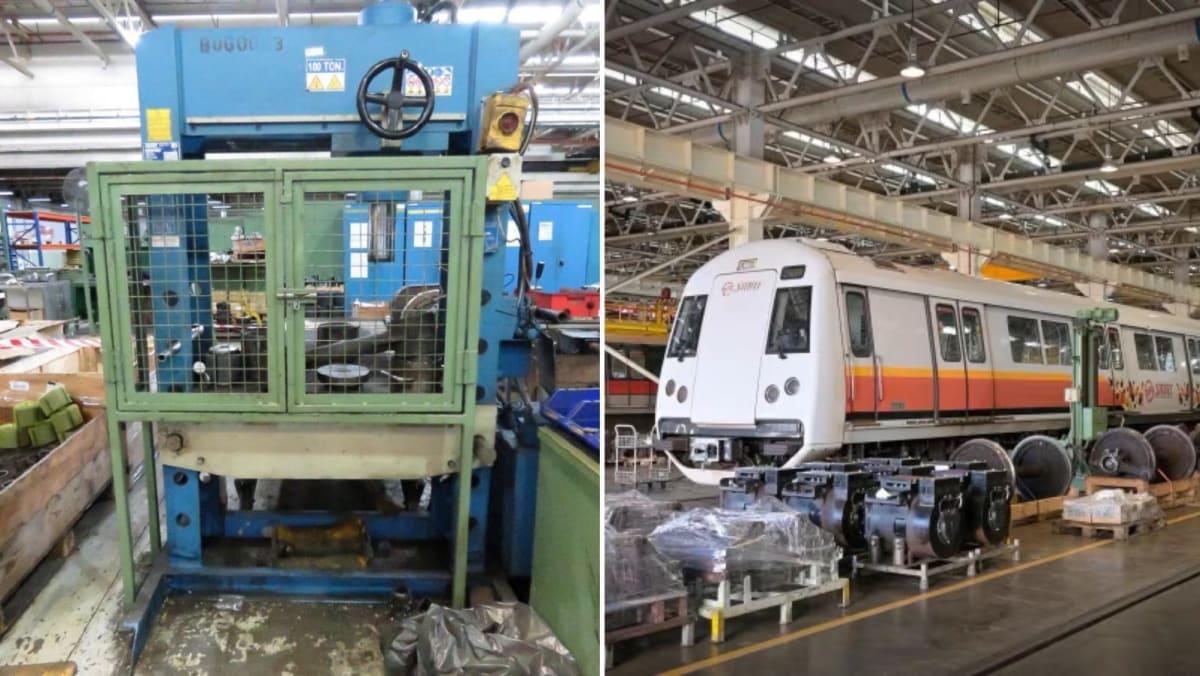SMRT admitted that it had failed to put in place a pressure gauge after the machine was dismantled for repair, even though this was a safety measure identified in the machine’s operating manual.
The machine’s pressure gauge was recorded as damaged in June 2018 and an engineering maintenance manager ordered it to be dismantled. He later overlooked its reinstallation.
It was not necessary for workers to monitor the exact pressure when operating the machine.
The Ministry of Manpower’s prosecutor Kimberly Boo, said, though, that a gauge would have given the workers an indication of any disproportionate increase in force when the machine was in operation.
SMRT also failed to limit the maximum operating pressure of the machine through the use of pressure valves, which would have reduced the workers’ exposure to a force way beyond what was needed for the machine’s intended use.
The maximum pressure of the hydraulic press machine was about 98 tonnes, which exceeded the pressure necessary to perform the task of removing and installing a part to the machine that day, which was about 1.4 tonnes and 3.3 tonnes respectively.
The train operator further failed to ensure that the pieces in the machine were engaged and interlocked to prevent displacement of any single one.
The company had earlier identified the hazard of a part slipping or shooting out of the machine in its risk assessment of May 2018.
During sentencing arguments, SMRT’s defence counsel said the accident was not the result of a flagrant disregard for safety, but represented an “extreme scenario” for which the possible safeguards were not in place.
She stressed SMRT’s safety culture, track record of operating the hydraulic press machine for more than 20 years without incident, and that the company had remained free of work-accidents for the past five years.
She also said that SMRT’s workplace injury rate was lower than the average in Singapore’s transport and logistics industry, with last year’s figure at 648 cases for every 100,000 workers yearly since 2020.
However, Ms Boo pointed to five of SMRT’s previous workplace safety convictions for accidents between 2010 and 2020, which formed what she called a “pattern” of offending.
These included a S$230,000 fine for a December 2018 accident that resulted in a worker’s leg being amputated, as well as a S$400,000 fine after two workers died after being hit by a train in March 2016.
Ms Boo said this gave rise to an “irresistible inference” that previous calls for robust safety practices and culture in the workplace were not heeded and she urged the court to send a strong signal.
Senior District Judge Ong Hian Sun said that he took SMRT’s prior related convictions into consideration in imposing the fine and that it was necessary for the company and its employees to proactively address safety risks.
